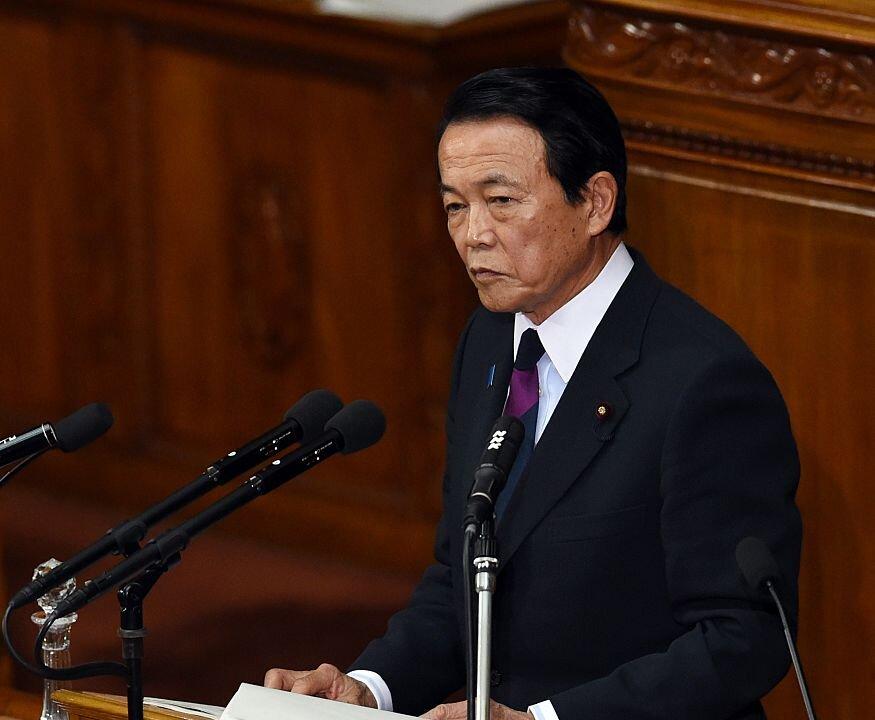Commentary
On July 5, Japan’s Deputy Prime Minister was reported as saying that “If a major incident happened [involving Taiwan], it would not be strange at all if it touches on a situation that threatens [Japan’s] survival.” Kyodo news agency reports him as saying, “If that is the case, then Japan and the US must defend Taiwan together.” He said, “We need to think hard that Okinawa could be the next.” Okinawa is the southernmost prefecture of Japan, and hosts U.S. military bases.
Taro Aso said that “the situation surrounding the self-governed island was ‘becoming extremely intense,’” according to the South China Morning Post, which was quick to discredit his views by claiming that he “backtracked” on them, without providing a supporting quote. The Post also called Mr. Aso “gaffe-prone.” The Post’s negative reporting against Aso might be explained by its ownership by Alibaba Group, a China-based e-commerce giant.
The Post reported that “Beijing issued a stern rebuke, saying Japan’s ‘obsession with Taiwan’ showed it had not learned the lessons of history.” China’s foreign ministry spokesman, the truth-challenged Zhao Lijian, told reporters that statements such as Aso’s were “wrong and dangerous.”
Mr. Zhao hypocritically trotted out World War II, yet again, to oppose Aso’s stand against territorial aggression. The foreign ministry spokesman said, “Japan has committed crimes during World War II, yet it is still obsessed with Taiwan and has not learnt the lessons of history. Today’s China is no longer the China of the past and will not allow any other country to intervene in its internal affairs. No one should underestimate China’s firm determination and powerful ability in safeguarding its sovereignty.”
Unfortunately, several Japanese officials distanced themselves from Aso’s comments. “Senior members of the Japanese government were quick to qualify Aso’s comments, with Chief Cabinet Secretary Katsunobu Kato saying they were the minister’s personal opinion and Defense Minister Nobuo Kishi adding that there had been no change in Tokyo’s support for the “one-China” policy, under which Taiwan is not regarded as a country,” according to Julian Ryall in the Post.
However, Aso is right to up the ante over Taiwan. And, his views are shared by many in the government. “Leading politicians are not usually able to say this sort of thing directly, so it is a surprise that he has stated what I believe many people in the government are thinking,” said a Tokyo professor of international relations, according to the Post.
As should be illustrated by the above, Japan, the United States, and our allies have not gone far enough to demonstrate a commitment to democratic Taiwan’s defense, preferring instead a so-far failed policy of “strategic ambiguity.”
Such ambiguity only invites precipitate military action by China against Taiwan in order to preempt a solid U.S.-Japan commitment to defend the island democracy. If China attacks Taiwan before the United States and allies make such a commitment, it might get away with the invasion and suffer no direct military retaliation. Russia achieved this with Crimea and Eastern Ukraine, despite a 1994 U.S. and UK treaty commitment to assure Ukraine’s territorial integrity when the country gave up its nuclear weapons.
As the only Chinese democracy in the world, Taiwan is critical as an exemplar for mainland China and Singapore, both of which have Chinese-majority populations, and both of which suffer under authoritarian forms of government. Democratization of China is important for long-term peace and security internationally, as the Chinese Communist Party (CCP) appears to be doubling down on its authoritarian model, which it apparently believes is more efficient than democracy. The CCP is also pushing the country to militarize and threaten war against not only Taiwan, but the Philippines and the United States as well. China’s military is taking over territory inside the borders of India and Bhutan, as well as grabbing maritime territory from the South China Sea five: the Philippines, Vietnam, Indonesia, Malaysia, and Brunei. The China threat is real.
Aso’s statement, and 2015 legislation that facilitates Japan’s defense of allies even if Japan is not directly attacked, are incremental forms of progress.
But, a true commitment to Taiwan’s defense would include not only a clear verbal commitment, as Aso is moving towards, but a multilateral defense treaty similar to that of NATO, along with international troop emplacements on the island, and encouragement of Taiwan to obtain its own nuclear deterrent. The failure of the international community of democracies to fully support their fellow democracy in these ways is what leads Xi Jinping to think he can get away with an invasion of Taiwan without serious military repercussions. If he follows through with his plan, we have only ourselves to blame, and the blood will be on all of our hands.
Anders Corr has a bachelor’s/master’s in political science from Yale University (2001) and a doctorate in government from Harvard University (2008). He’s a principal at Corr Analytics Inc., publisher of the Journal of Political Risk, and has conducted extensive research in North America, Europe, and Asia. He authored “The Concentration of Power” (forthcoming in 2021) and “No Trespassing,” and edited “Great Powers, Grand Strategies.”





